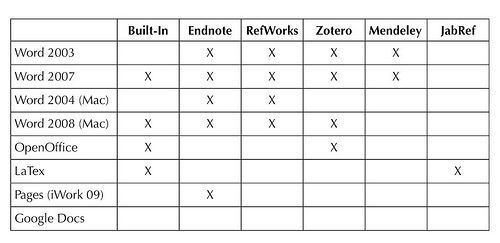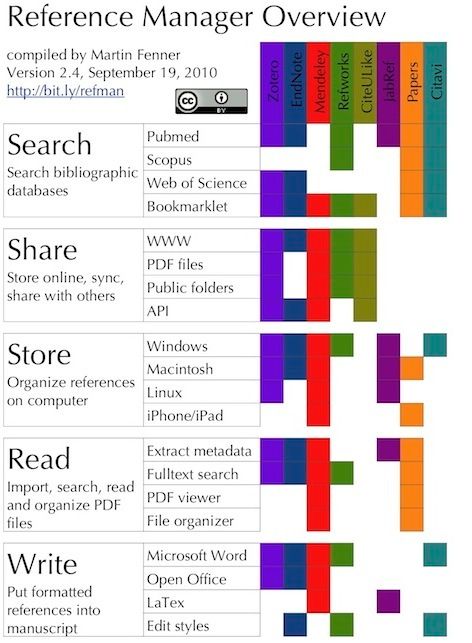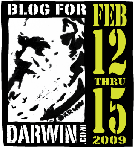The scientific articles we write are uniquely identified by Digital Object Identifiers (DOI). Many people believe that we also need unique identifiers for the authors of those articles. Some of the arguments why author identifiers could be very helpful are found in this interview with Geoffrey Bilder, this Researcher Identification Primer, and this FriendFeed discussion.
Messaggi di Rogue Scholar

A recent Nature News article by Geoff Brumfiel (Science journalism: Supplanting the old media?) has stirred up many interesting discussions about the relationship of science blogging and traditional science journalism. Good starting places to follow these discussions (and engage in them) are Technorati, Nature.com Blogs and FriendFeed. Science blogging extends, but also threatens traditional science journalism.

Citations of the relevant literature are an essential feature of scientific papers. Reference Manager software helps adding these citations and creating a bibliography. Are there differences in how reference managers work together with your word processor of choice? Support for your favorite word processor Support for word processors other than Microsoft Word is spotty.

18 April 2009: I've updated the chart and added 2collab, the “Read” category, sharing of PDF files, and the Mendeley bookmarklet and full-text search. 15 July 2009: I've updated the chart to indicate that Mendeley and L*abmeeting have integrated PDF viewers and that 2collab can search Scopus. * 20 July 2009: I've added the offline version of RefWorks for Windows, EndNote OpenOffice plugin, and

Mutation and selection are important concepts in cancer biology. One well-known example is hereditary colon cancer. Patients with mutations in the DNA mismatch repair genes MLH1 or MSH2 develop colon cancer because of an increased rate of mutations. And tumors in patients with familial polyposis coli have a growth advantage because of a mutation in the tumor suppressor gene APC.
A few weeks ago I wrote about the different ways results of a clinical trial can be reported (What are the right numbers for JUPITER). Inspired by blog posts by Eva Amsen (Failure) and Sally Church (Over hyped cancer drugs or sensational journalism?), I thought more about what makes scientific findings worth talking about outside of your immediate research community.
With the December 18 issue Nature started to support XMP markup in article PDFs (reported last week on the Nascent blog by Tony Hammond ) 1 . XMP stands for Extensible Metadata Platform and is a technology to embed metadata in files, including PDFs 2 . XMP was created by Adobe (with XMP support in PDF files since 2001), but is an open standard with backing by others, including
Direct to consumer advertising (DTCA) – advertising for prescription drugs – is only allowed in the United States (since 1997, when restrictions were loosened) and New Zealand. Drug companies pay for direct to consumer advertising (more than $4 billion in 2005 (Donohue 2007)) because they believe that it increases prescription rates.
Results of clinical trials can sometimes not only change our understanding of the condition studied, but may also affect the way we practice medicine. The Justification for the Use of Statins in Primary Prevention: an Intervention Trial Evaluating Rosuvastatin ( JUPITER ) is such a study.

Working in science is as much about reading papers as it is about writing papers.